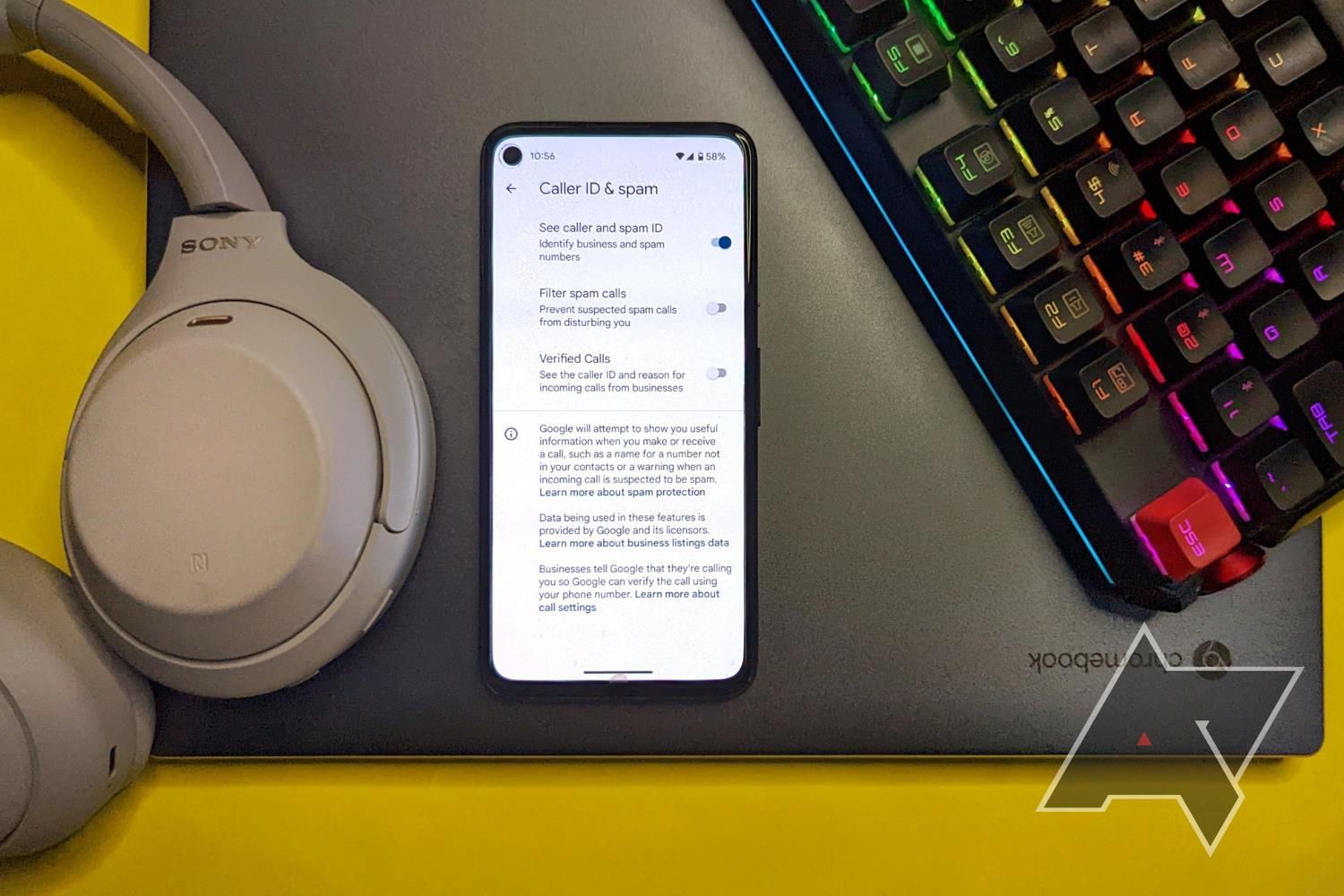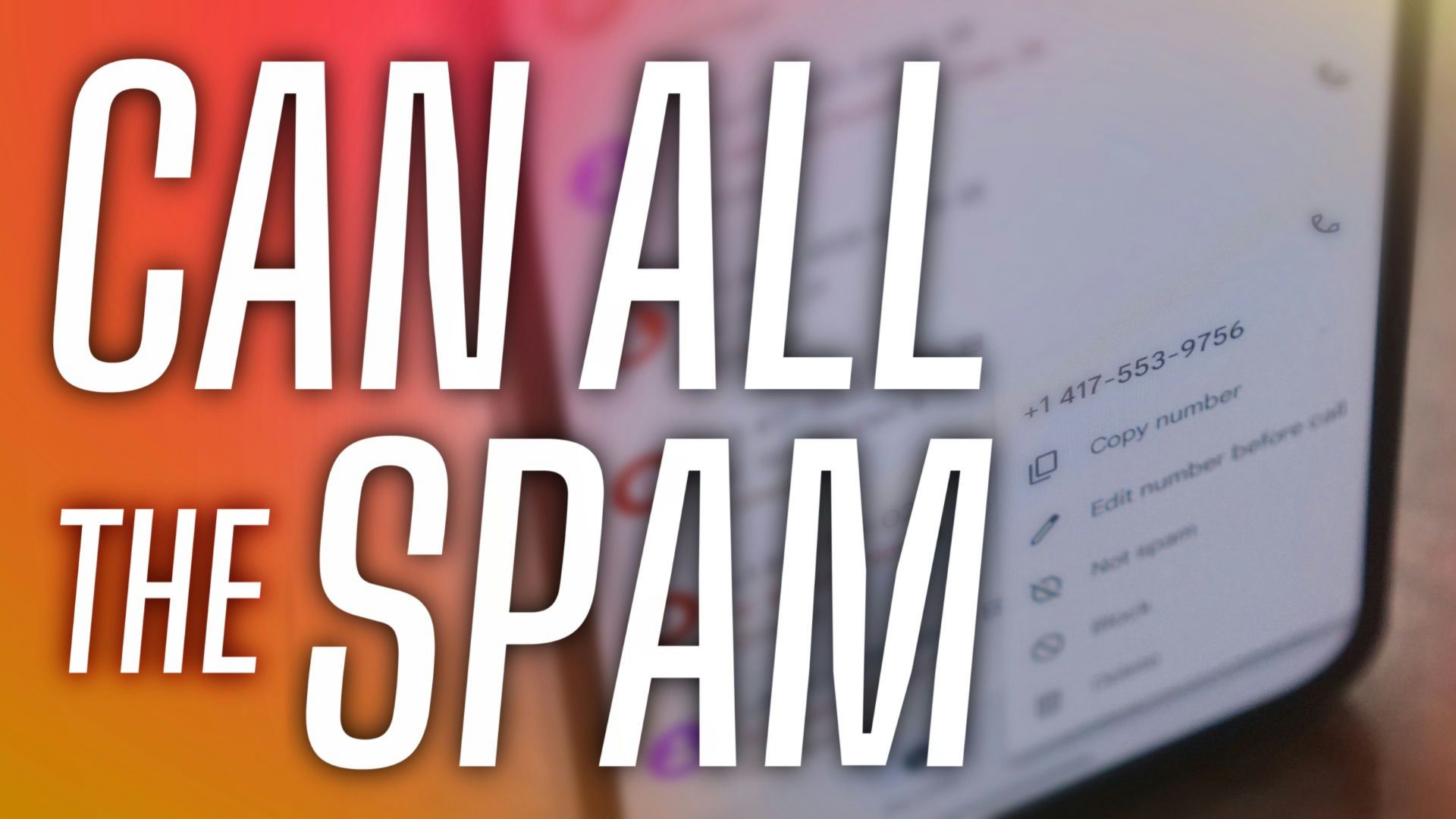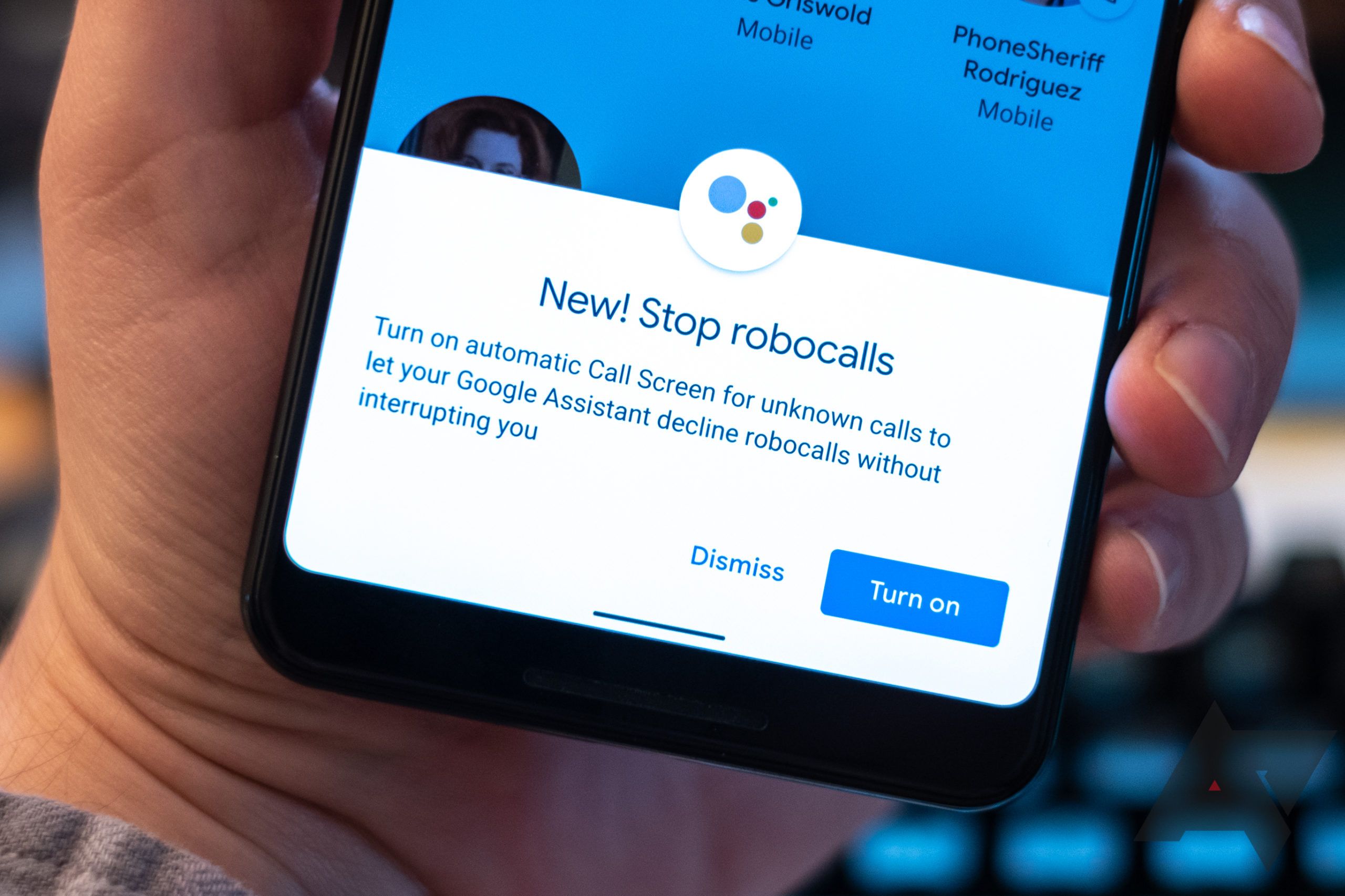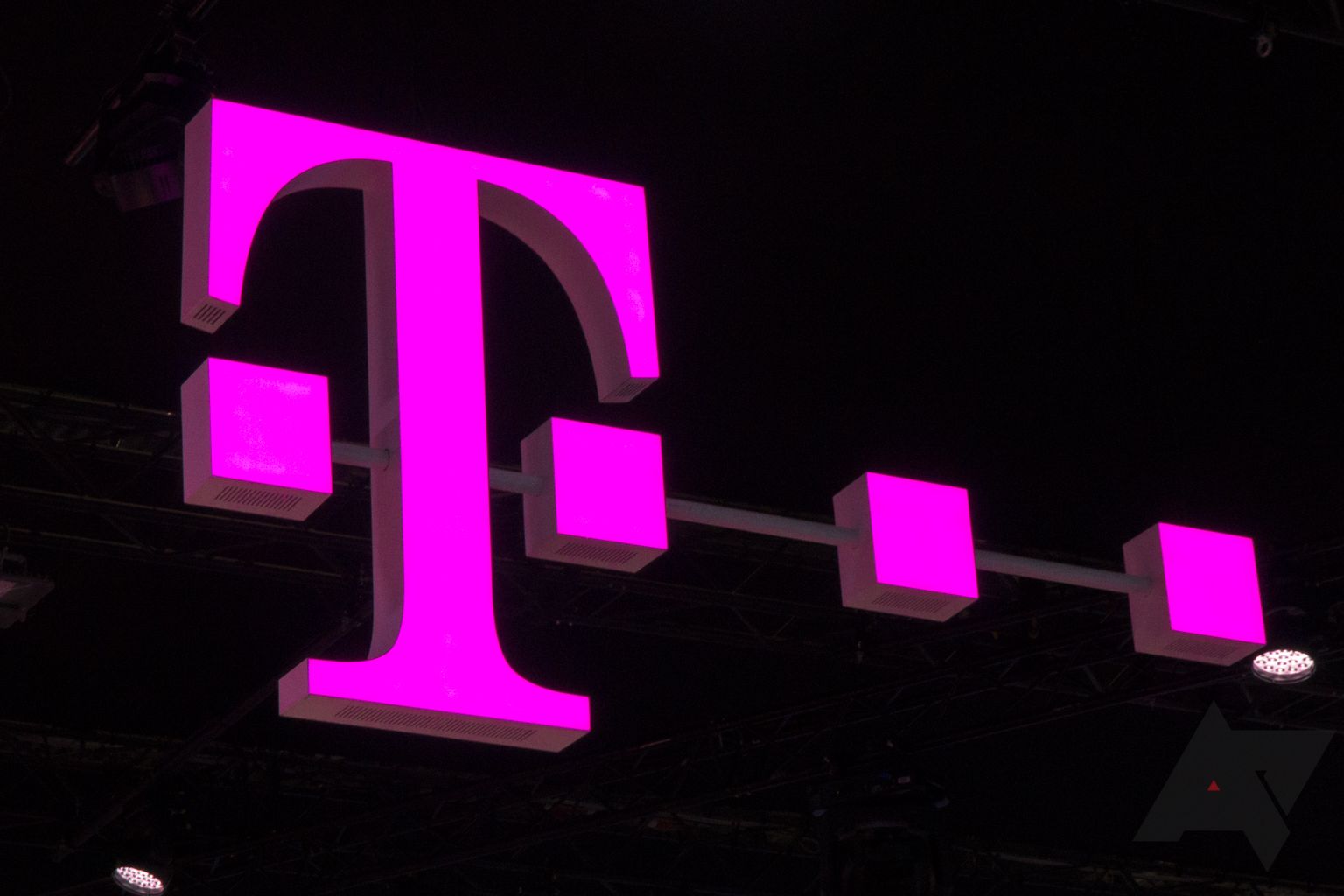latest

AT&T really wants to stop you from being duped into answering robocalls
The telecom giant is partnering with TransUnion to combat spoofing
Robocalls have been a serious issue for years, despite legislators doing their best to pass regulations to crack down on them. In turn, many telecom companies have taken matters into their own hands to reduce how frequently these calls impact their customers. Now, AT&T is joining the club and turning to credit reporting agency TransUnion for help.

As smartphone and internet usage continue to grow, so do the annoying spam calls that come with it. Aside from the inconvenience, these spam calls are tools for aggressive targeting and scam attempts. Despite efforts by the Federal Communications Commission (FCC) and mobile carriers, you can take steps to safeguard yourself. Start by activating the built-in spam filter on your budget Android phone or high-end Android device. You can also use the blocking tool offered by your mobile carrier or a third-party solution. Keep reading to find out all the options available and how to use them.

Everyone please copy Verizon's latest spam call fighting tool immediately
The ability to block calls based on area code alone is a feature that's long overdue
I've had the same phone number since Google Voice launched back when I was in college, over a decade ago. I've moved (lemme think) seven times since then, and not a single person I still know is calling me from the Bryan-College Station area. So when spammers copy my area code in a lame attempt at engagement, I only answer the phone if I'm in the mood to waste time and mess with some criminals.

Google will expand support for Phone app to even more phones on the Play Store, Verified Calls feature rolling out
Another step in the fight against spam calls
Despite attempts by legislators and carriers, spam calls are still a problem for most people owning phones. Some don't pick up their phones at all unless it matches someone in their contacts, which can be a problem for legitimate businesses attempting to quickly reach customers. Google's solution to the problem is Verified Calls, which is now rolling out to the Google Phone app. At the same time, the company is allowing some devices to download the Phone app from the Play Store that didn't originally come with it.

Read update
Late last year, Google promised that the Pixel 4's automatic Call Screening feature would be coming to all of its Pixel phones in the coming weeks. Well, it's been eight weeks, but it looks like the feature is finally starting to roll out to other Pixel phones. We have confirmed reports that the Pixel 2 and Pixel 3 have picked up automatic Call Screening, potentially related to the latest Phone app beta.

Sprint and T-Mobile are latest carrier pair to adopt STIR/SHAKEN anti-spam phone number verification
Following T-Mobile's collaborations last year with AT&T and Comcast, the company is now working together with Sprint to help cut back on spam calls. Today T-Mobile and Sprint have announced they're implementing the STIR/SHAKEN anti-spam standards between their two networks, forging yet another carrier pairing that will eventually culminate with industry-wide call verification.

The US Justice Department has filed lawsuits against a handful of companies and individuals, accusing them of facilitating hundreds of millions of fraudulent robocalls. The suits accuse the companies of causing "elderly and vulnerable victims" serious financial harm.

Today US President Donald J. Trump has signed into effect the TRACED (or Telephone Robocall Abuse Criminal Enforcement and Deterrence) Act, aimed to prevent unwanted spam/robocalls, authorizing fines up to $10,000 per illegal call with no advance warning, extending the statute of limitations for violations to four years, and imposing a requirement that carriers implement call authentication solutions, like the existing SHAKEN/STIR verification tech.

No one in the world likes spam phone calls—it's probably the only thing on which everyone can agree. The FCC recently allowed carriers to block these calls by default, and Verizon says it's moving full-steam ahead to take advantage of that. Starting today, it will begin auto-enrolling customers in free spam blocking.

Robocalls are a problem almost everyone in the US can relate to, and the fact that carriers weren't allowed to block suspected spam calls without the explicit opt-in from customers for a long time hasn't exactly improved the issue. An FCC ruling in June changed legislation around that, and AT&T was quick to act on it. The company is now automatically blocking calls it suspects as spam or fraud.

Read update
Your smartphone already lets you block annoying callers so that you never have to deal with them again, but what if it could be proactive? Android could soon allow you to block calls and texts from sources that haven't even called you yet.

To say that spam calls are annoying would not only be redundant, but it'd also be a big understatement. These nuisances are primarily why I hardly answer my phone anymore and they've only gotten worse in recent months and years. T-Mobile is taking a stand against it by implementing what it calls Caller Verified technology, starting with the Samsung Galaxy Note9.

Spam calls have become obnoxious as of late for many people - myself included - and it looks like they are only going to get worse. First Orion Corporation, which provides spam call filters to carriers, estimates that 44.56% of all calls in 2019 will be spam.

Spam calls are the worst. In March, the Federal Communications Commission issued a warning about the "scourge" of scam robocalls and caller ID spoofers, and last month imposed hefty fines against a number-spoofing spam caller. Now, the Federal Trade Commission has filed a formal complaint against a large-scale telemarketing operation.

Read update
Yesterday, Google opened the doors to a new beta channel for its Phone app. For those joining the beta releases, there's already a fresh update to v19 waiting for them to play with. There are a lot of changes coming through in this round, including some updates to the UI, an option to filter spam calls, and much more. If you want to get your hands on the latest version, but aren't quite ready to join the beta, grab the apk from the APK Mirror link below.

An interesting new version of the Project Fi app began rolling out yesterday. There's a big change to the version number, but otherwise, nothing special to see in the app. However, a teardown of the resources reveals some important changes are scheduled to arrive. The biggest addition will be spam filtering, which should remove all of the disturbances caused by annoying telemarketers and scammers. Also in line are notifications when your data usage suddenly skyrockets, and an in-app feature to turn off Bill Protection once your data is throttled.

Over the past several months, I've become increasingly familiar with how to block phone numbers in Google's Phone app: reject a suspicious call, go into my call history, long-press the dubious number, then tap "Block/report spam." This process is simple enough, but it's still just a reactionary, case-by-case measure. Android P may improve this call-blocking experience by giving users a smarter, preemptive way to block types of phone numbers — that is, so long as your carrier doesn't get in the way

No one likes spam calls, and Google knows that. You may recall that last year, Google added a warning in the Phone app for when a suspected spam caller was ringing. Now the company is bringing that same feature to Google Voice.













